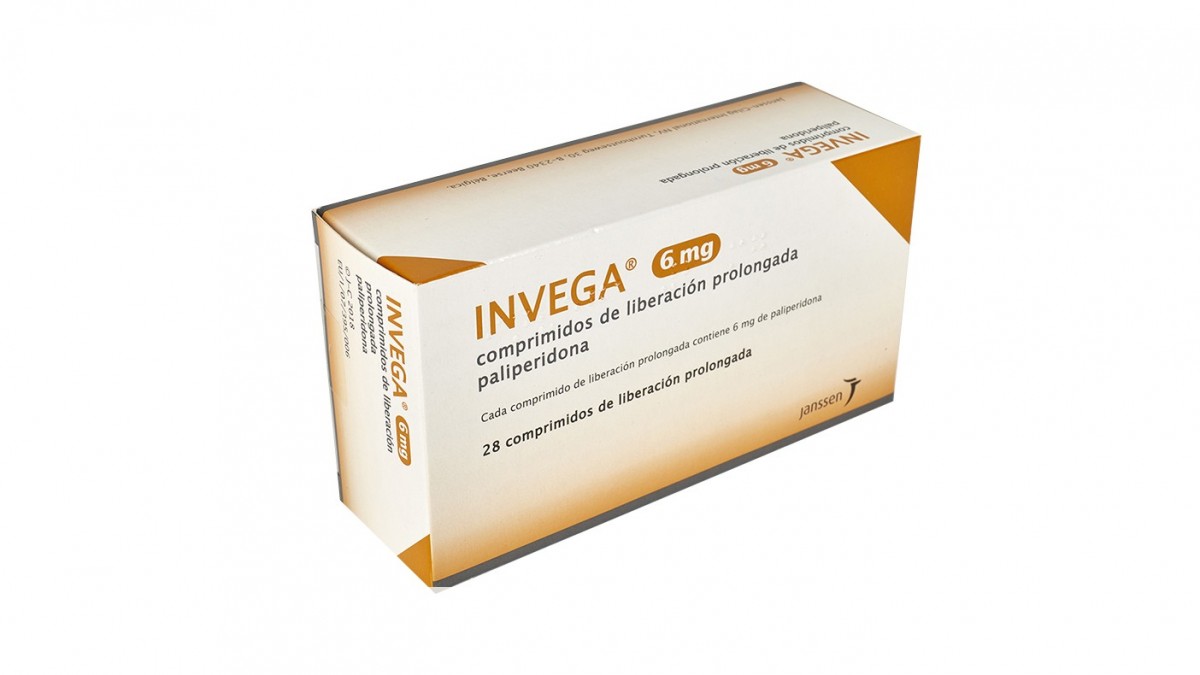Nov 25, 2018 invega belongs to the class of medications known as atypical antipsychotics according to goodrx. com, 30 tablets of 6mg invega cost approximately $1,000. thirty tablets of 6mg generic paliperidone cost approximately $8. The recommended dose of invega® (paliperidone) extended-release tablets for the treatment of schizophrenia in adults is 6 mg administered once daily. initial dose titration is not required. although it has not been systematically established that doses above 6 mg have additional benefit, there was a general trend for greater effects with higher doses. this must be weighed against the dose-related increase in adverse reactions. thus, some patients may benefit from higher doses, up to 12 mg/day, and for some patients, a lower dose of 3 mg/day may be sufficient. dose increases above 6 mg/day should be made only after clinical reassessment and generally should occur at intervals of more than 5 days. when dose increases are indicated, increments of 3 mg/day are recommended. the maximum recommended dose is 12 mg/day. the recommended starting dose of invega® (paliperidone) extended-release tablets for the treatment of schizophrenia in adolescents 1217 years of age is 3 mg administered once daily. initial dose titration is not required. dose increases, if considered necessary, should be made only after clinical reassessment and should occur at increments of 3 mg/day at intervals of more than 5 days. prescribers should be mindful that, in the adolescent schizophrenia study, there was no clear enhancement to efficacy at the higher doses, i. e. 6 mg for subjects weighing less than 51 kg and 12 mg for subjects weighing 51 kg or greater, while adverse events were dose-related. the recommended dose of invega® (paliperidone) extended-release tablets for the treatment of schizoaffective disorder in adults is 6 mg administered once daily. initial dose titration is not required. some patients may benefit from lower or higher doses within the recommended dose range of 3 to 12 mg once daily. a general trend for greater effects was seen with higher doses. this trend must be weighed against dose-related increase in adverse reactions. dosage adjustment, if indicated, should occur only after clinical reassessment. dose increases, if indicated, generally should occur at intervals of medication errors due to nursing shortage more than 4 days. when dose increases are indicated, increments of 3 mg/day are recommended. the maximum recommended dose is 12 mg/day. dosing must be individualized according to the patient's renal function status. for patients with mild renal impairment (creatinine clearance 50 ml/min to < 80 ml/min), the recommended initial dose of invega® is 3 mg once daily. the dose may then be increased to a maximum of 6 mg once daily based on clinical response and tolerability. for patients with moderate to severe renal impairment (creatinine clearance 10 ml/min to < 50 ml/min), the recommended initial dose of invega® is 1. 5 mg once daily, which may be increased to a maximum of 3 mg once daily after clinical reassessment. as invega® has not been studied in patients with creatinine clearance below 10 ml/min, use is not recommended in such patients. [see clinical pharmacology (12. 3)]. The effects of paliperidone on the qt interval were evaluated in a double-blind, active-controlled (moxifloxacin 400 mg single dose), multicenter qt study in adults with schizophrenia and schizoaffective disorder, and in three placeboand active-controlled 6-week, fixed-dose efficacy trials in adults with schizophrenia.
Invega Fda Prescribing Information Side Effects And Uses
Invega® for the treatment of schizophrenia & schizoaffective.
Nursing Shortage Contributes To Medical Errors And Patient
For the three fixed-dose efficacy studies in subjects with schizophrenia, electrocardiogram (ecg) measurements taken at various time points showed only one subject in the invega® 12 mg group had a change exceeding 60 msec at one time-point on day 6 (increase of 62 msec). no subject receiving invega® had a qtcld exceeding 500 msec at any time in any of these three studies. In 2016, minnesota nurses filed more concern for safe staffing forms than any other year on record, citing incidents where patient care was compromised or at risk due to understaffing by hospitals. “the staffing problem cannot be blamed on a nursing shortage,” said mathew keller, co-author of the analysis by the minnesota nurses association. Undesirable alterations in lipids have been observed in patients treated with atypical antipsychotics. For example, using table 2, you can see that 78% of study rns indicated that they did not give a.
Paliperidone Er Medicare Coverage And Copay Details Goodrx
In a longer-term study, invega® has been shown to be effective in delaying time to relapse in patients with schizophrenia who were stabilized on invega® for 6 weeks [see clinical studies (14)]. invega® should be prescribed at the lowest effective dose for maintaining clinical stability and the physician should periodically reevaluate the long-term usefulness of the drug in individual patients. Generic name & formulations: paliperidone 1. 5mg, 3mg, 6mg, 9mg; ext-rel tabs. company: janssen pharmaceuticals, .
The management of nms should include: (1) immediate discontinuation of antipsychotic drugs and other drugs not essential to concurrent therapy; (2) intensive symptomatic treatment and medical monitoring; and (3) treatment of any concomitant serious medical problems for which specific treatments are available. there is no general agreement about specific pharmacological treatment regimens for uncomplicated nms. See full list on drugs. com.
Cariprazine coupon cariprazine 1. 5mg capsule. cariprazine. vraylar. cariprazine is an antipsychotic. it is used to treat schizophrenia or bipolar disorder. Medicare coverage and pricing details for paliperidone er. learn more about medicare prescription drug plans and savings with goodrx.
What is invega? goodrx.
Nursing shortage and medical errors. the nursing shortage contributes to both patient care and outcome. high patient-to-nurse ratios have a direct impact on medical errors. an increase in a nurses workload paired with stress puts a patient’s care at risk. medical errors are often the result of an increase in a nurse’s workload coupled with. Drug shortages lead to medication errors. the institute for safe medication practices (ismp) in harsham, penn. found in a 2010 survey widespread frustration .

Research has proven that some of the leading causes of severe effects in inpatient care may be directly attributed to the medication errors due to nursing shortage current nursing shortage in hospitals. the result of understaffing of nurses may lead to medication errors that may end up causing deaths among patients.
The recommended dose of invega ® (paliperidone) extended-release tablets for the treatment of schizoaffective disorder in adults is 6 mg administered once daily. initial dose titration is not required. some patients may benefit from lower or higher doses within the recommended dose range of 3 to 12 mg once daily. Concomitant use of invega® with risperidone has not been studied. since paliperidone is the major active metabolite of risperidone, consideration should be given to the additive paliperidone exposure if risperidone is coadministered with invega®. According to reports cited by the american association of nurses, a lack of nurse staffing is directly linked to an increase in mortality rates, hospital readmission . Elderly patients with dementia-related psychosis treated with antipsychotic drugs are at an increased risk of death. analyses of 17 placebo-controlled trials (modal duration of 10 weeks), largely in patients taking atypical antipsychotic drugs, revealed a risk of death in drug-treated patients of between 1. 6 to 1. 7 times the risk of death in placebo-treated patients. over the course of a typical 10-week controlled trial, the rate of death in drug-treated patients was about 4. 5%, compared to a rate of about 2. 6% in the placebo group. although the causes of death were varied, most of the deaths appeared to be either cardiovascular (e. g. heart failure, sudden death) or infectious (e. g. pneumonia) in nature. observational studies suggest that, similar to atypical antipsychotic drugs, treatment with conventional antipsychotic drugs may increase mortality. the extent to which the findings of increased mortality in observational studies may be attributed to the antipsychotic drug as medication errors due to nursing shortage opposed to some characteristic(s) of the patients is not clear. invega® (paliperidone) is not approved for the treatment of dementia-related psychosis [see boxed warning]. a syndrome of potentially irreversible, involuntary, dyskinetic movements may develop in patients treated with antipsychotic drugs. although the prevalence of the syndrome appears to be highest among the elderly, especially elderly women, it is impossible to predict which patients will develop the syndrome. whether antipsychotic drug products differ in their potential to cause tardive dyskinesia is unknown. the risk of developing tardive dyskinesia and the likelihood that it will become irreversible appear to increase as the duration of treatment and the total cumulative dose of antipsychotic drugs administered to the patient increase, but the syndrome can develop after relatively brief treatment periods at low doses, although this is uncommon. the syndrome may remit, partially or completely, if antipsychotic treatment is withdrawn. antipsychotic treatment itself may suppress (or partially suppress) the signs and symptoms of the syndrome and may thus mask the underlying process. the effect of symptomatic suppression on the long-term course of the syndrome is unknown.


In the qt study (n=141), the 8 mg dose of immediate-release oral paliperidone (n=50) showed a mean placebo-subtracted increase from baseline in qtcld of 12. 3 msec (90% ci: 8. 9; 15. 6) on day 8 at 1. 5 hours post-dose. the mean steady-state peak plasma concentration for this 8 mg dose of paliperidone immediate-release was more than twice the exposure observed with the maximum recommended 12 mg dose of invega® (cmax ss = 113 ng/ml and 45 ng/ml, respectively, when administered with a standard breakfast). in this same study, a 4 mg dose of the immediate-release oral formulation of paliperidone, for which cmax ss = 35 ng/ml, showed an increased placebo-subtracted qtcld of 6. 8 msec (90% ci: 3. 6; 10. 1) on day 2 at 1. 5 hours post-dose. none of the subjects had a change exceeding 60 msec or a qtcld exceeding 500 msec at any time during this study. Professionals in the medical field. however, the states today is in the midst of a nursing shortage mainly of additional 23. 8% of the medication errors were caused by overworked and an additional 12. 3% were due to a high patie. The high turnover related to stress and burnout can lead to even lower nursing staffing levels and higher costs for health care organizations as they search for and train replacements. medication errors. vigilant nurses are often the step between the patient receiving the wrong medication or an incorrect dose prescribed by a physician or a pharmacist.
Jun medication errors due to nursing shortage 27, 2018 warfarin sod 6mg tab $29. 99. price. cialis 2. 5mg tab. 6. $74. 99. cialis 5mg tab. 6 invega sustenna 117mg/0. 75ml inj. Invega® must be swallowed whole with the aid of liquids. tablets should not be chewed, divided, or crushed. the medication is contained within a nonabsorbable shell designed to release the drug at a controlled rate. the tablet shell, along with insoluble core components, is eliminated from the body; patients should not be concerned if they occasionally notice in their stool something that looks like a tablet.


0 comments:
Post a Comment